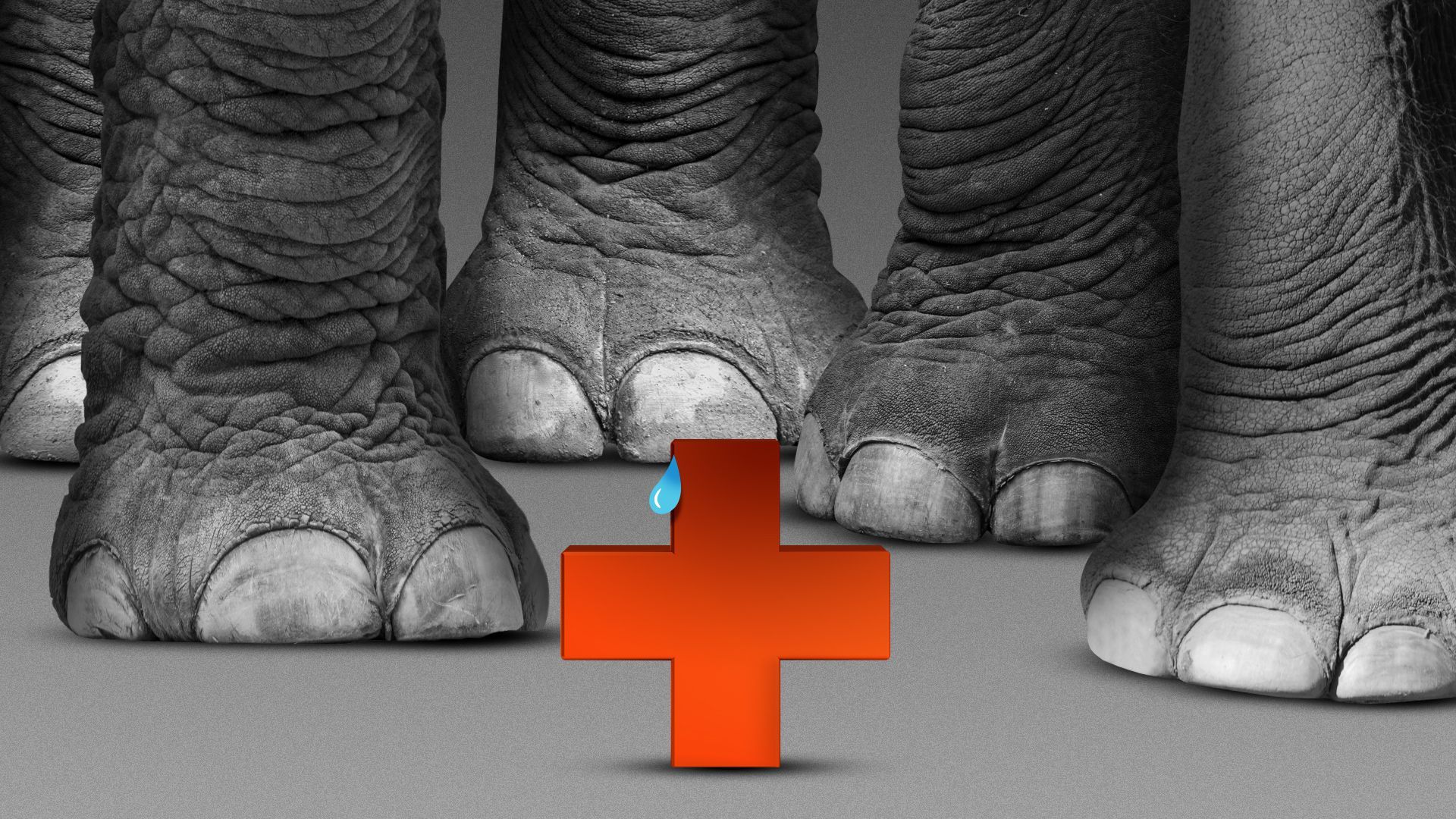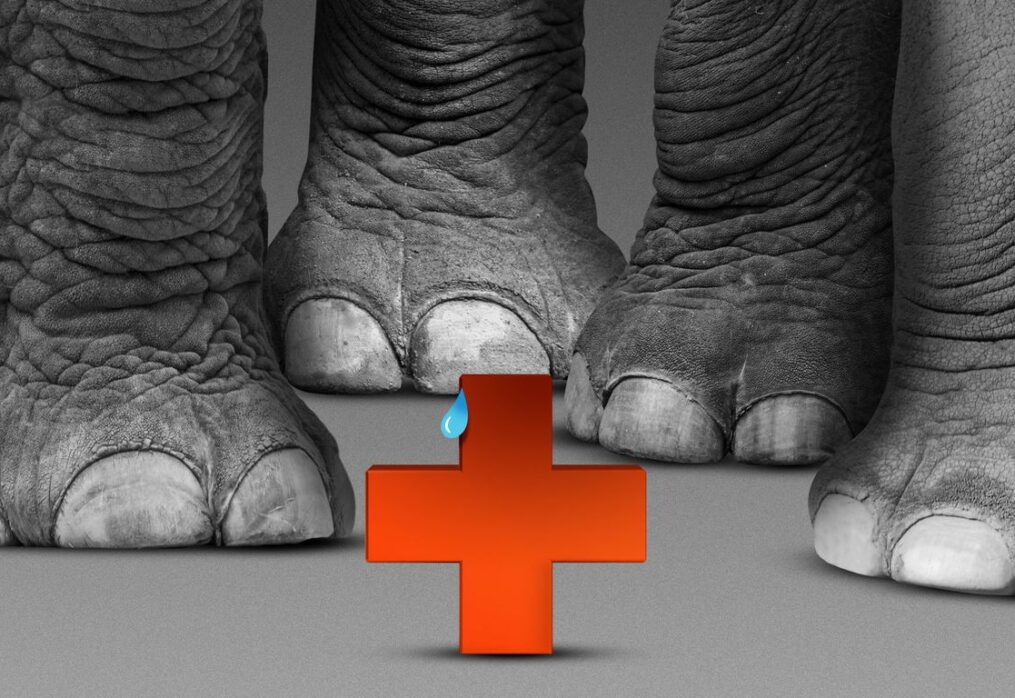Health agencies in Congress’ crosshairs

Illustration: Aïda Amer/Axios
When House Republicans grill Biden administration officials on the COVID-19 response at a Wednesday hearing, some of the sharpest questions may surround how the government oversees research on pathogens that can cause pandemics.
Why it matters: This House Energy and Commerce Committee hearing is part of a series of inquiries planned by the new GOP majority around the pandemic.
- Lawmakers have demanded documents related to COVID-19’s origins amid concerns about “gain-of-function” research that enhances pathogens and can help develop new treatments but also carries risks by introducing new, potentially more dangerous viruses.
The big picture: While the hearing will feature the heads of the National Institutes of Health, the Food and Drug Administration, Centers for Disease Control and the Administration for Strategic Preparedness and Response, the NIH has come under fire from federal watchdogs in the last months for its oversight of researchers conducting risky research.
- The findings add a new twist to the highly charged, partisan debate over the causes of the pandemic — and bring into focus how the government funds high-risk work at universities, medical schools and other research institutions.
Details: An HHS Office of Inspector General audit in January found NIH didn’t effectively monitor or take timely action to address problems with grants to EcoHealth Alliance, a nonprofit that directed some of the money to the Wuhan Institute of Virology to study bat coronaviruses.
- The funding was canceled in the spring of 2020 following unproven claims that the novel coronavirus was manmade or escaped from a Chinese government lab.
- NIH had concluded the studies didn’t qualify as “gain-of-function” research that requires a special review because the hybrid viruses weren’t expected to be more dangerous. But it missed opportunities to follow up on the research and address potential risks, per Science.
- Those findings followed a Government Accountability Office report that found HHS has an unclear policy for reviewing and approving research involving pathogens that are altered to make them more transmissible or deadly — and that other policy gaps may allow the research to occur without appropriate oversight.
- The report faults HHS for not fleshing out what work “reasonably anticipated to create, transfer, or use enhanced potential pandemic pathogens” under a 2017 framework should be referred for extra reviews of risks and benefits.
Between the lines: The NIH also houses the National Institute of Allergy and Infectious Diseases formerly led by Anthony Fauci who frequently sparred with GOP members of Congress, in particular with Sen. Rand Paul.
- Some policy experts have called for NIH’s bureaucratic and cultural issues to get a critical look in addition to the CDC and FDA.
Zoom in: A permanent director has not yet been named to lead the NIH after Francis Collin’s departure in late 2021. Lawrence Tabak, who is the senior official performing the duties of the NIH director will testify.
- Other officials on the agenda include FDA commissioner Robert Califf, CDC director Rochelle Walensky and HHS’ assistant secretary for preparedness and response Dawn O’Connell.
What they’re saying: “It’s imperative that we hear from these government health agencies to uncover what decisions were made and why, hold individuals accountable for errors, bolster our pandemic preparedness moving forward, and start on the long road to rebuilding public trust in our institutions,” House Energy and Commerce Committee Chair Cathy McMorris Rodgers (R-Wash.), Oversight and Investigations Subcommittee Chair Morgan Griffith (R-Va.) and Health Subcommittee Chair Brett Guthrie (R-Ky.) said in a statement.
Yes, but: Experts have warned the politicized nature of the hearings may further erode trust in the government’s leading public health agencies.

